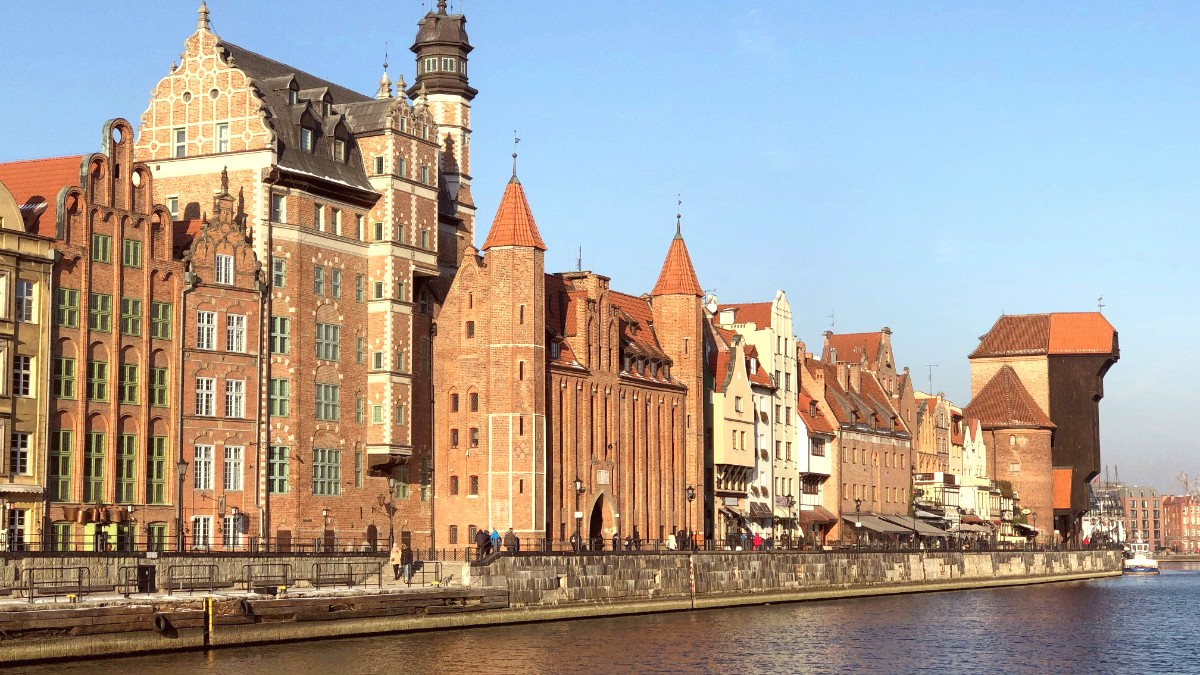
Pomerania, Poland
Explore the charming Long Market, marvel at Neptune's Fountain, and experience the unique atmosphere of the Motlawa River waterfront. Gdansk invites visitors to discover its many layers.
Gdansk culture reflects its strategic position and historical resilience. Local residents cherish their heritage, evident in the preserved architecture and lively festivals.
The city's spirit embraces both tradition and modernity, creating a welcoming atmosphere for all who arrive.
Poland uses the Polish Złoty (PLN). Major credit cards receive wide acceptance in hotels, restaurants, and shops. ATMs scatter throughout the city for cash access. Currency exchange offices are present, but bank rates might be better.
The official language is Polish. English speakers find many in tourist areas and among younger generations. Learning a few basic Polish phrases like "Dzień dobry" (Good morning) or "Dziękuję" (Thank you) shows courtesy.
Leaving 10-15% at restaurants for good service is customary.
Type E sockets (two round pins). Voltage is 230V, frequency 50Hz.
Tap water is generally safe to drink in Gdansk.
Public restrooms are widely available, sometimes requiring a small fee.
Central European Time (CET), UTC+1. Adjust for Daylight Saving.
Gdansk experiences a moderate climate influenced by its Baltic Sea proximity. Summers feature pleasant warmth, while winters bring cold temperatures and occasional snow. Spring and autumn are cool with varying rainfall.
Mild to warm days with averages around 18-20°C (64-68°F). Long daylight hours. Occasional thunderstorms.
Cold, with average temperatures near 0°C (32°F). Snowfall is common, creating a winter wonderland scene.
Layered clothing is advisable for any season, allowing flexibility for temperature changes and coastal breezes.
Gdansk presents a generally safe environment for visitors. Exercising standard precautions remains a wise approach. Keep valuables secure and remain aware of your surroundings, notably in crowded areas.
In any emergency, direct contact with local authorities will connect you with assistance.
High-quality medical services are available. For emergencies, hospitals include University Clinical Centre.
"Apteka" signs mark pharmacies, offering medication and health items. Some operate 24/7.
Petty theft can happen in tourist hotspots; keep personal items secure.
No specific vaccinations are mandatory for entry to Poland from most countries. Consult your doctor for current travel health advice.
A handshake is common for introductions. Use "Pan/Pani" (Mr./Ms.) for respect.
Wait to be seated in restaurants. It's polite to keep hands above the table, not on your lap.
Queue patiently. Avoid loud conversations in public spaces, especially churches.
Locals are generally helpful, though language can be a barrier. Maps or translation apps assist greatly.
Bargaining is not typical in shops or restaurants. Fixed prices are standard, except possibly at open-air markets.